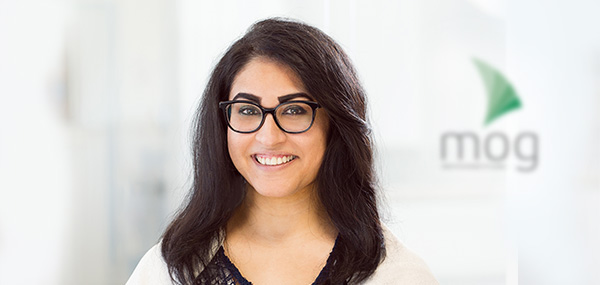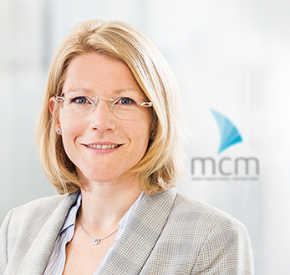Interview with Senior Recruiter Schila Rasooli
The pursuit of a fulfilling healthcare career often goes beyond borders, leading skilled professionals to explore opportunities in new territories. For foreign nurses considering immigration to Germany, a country known for its advanced healthcare system and diverse opportunities, the journey towards a new chapter can be both exciting and challenging.

Schila Rasooli, Senior Recruiter at MOG Ärztevermittlung, tells us what to consider when immigrating to Germany and how to find a job as a nurse from abroad. From legal and bureaucratic issues to cultural integration and professional growth, this interview is intended to provide guidance for those who want to bring their skills to the German healthcare system.
Shila, you already have some experience with the placement of foreign medical staff. How does the immigration of nurses from abroad usually proceed?
People usually already have a completed training in nursing in their country. Many already speak German reasonably well and can then get a certificate of their language skills. This still has to be recognized by the authorities in Germany. At the same time, a candidate can already look for job offers and apply to suitable job postings. There is a variety of job offers in nursing in Germany. For example, on our job board.
If the application has been successful, you still have to apply for the work visa.
Can a foreign nurse work in Germany?
Yes, of course. But as in any job, it's easier if you already speak the language. Especially in a profession where you work so closely with other people, it is important to understand the language and also be able to speak it. Communication with patients is also an important factor, because they need the encouragement of their nurses from time to time.
In my experience, at least B2 level is necessary to get a job in Germany. If candidates with a B1 level get in touch with me, then we can manage their way together, but below that level it will be very difficult and I would recommend language courses first.
This makes sense anyway, because it's not only in the professional environment that it's easier if you can communicate in the local language.
What are the requirements for foreign nurses to work in Germany?
There are different requirements for different countries of origin
From EU, Iceland, Liechtenstein, Norway or Switzerland: You don´t need a visa or a residence permit to work in Germany as a nurse.
From Non-EU-Countries: Nurses from Non-EU-Countries require a residence permit. So when you want to immigrate from a Non-EU-Country, you have to apply for the work visa.
What is the average Salary of nurses in germany 2023?
The Salary depends on the experience you have. It is between € 2,000 and € 4,400 gross per month.
As a nurse from abroad, you have to remember that in Germany the gross salary is not what you really have at your disposal. You negotiate the gross salary with your employer. Taxes and social benefits are then deducted from this salary before it is paid into the account. This is important information for people who do not yet know the German system, because the disappointment is often strong when looking at the first pay slip. Gross-net calculators, which are available online, can be helpful in advance. This allows you to estimate how much of the negotiated salary will actually be left over. Here, for example, is one for 2023: https://www.spiegel.de/wirtschaft/service/brutto-netto-rechner-was-von-lohn-und-gehalt-uebrig-bleibt-a-223811.html And a search in a search engine also provides further results.
There is a high demand for nurses in Germany – why should people work with our recruitment agency MOG Ärztevermittlung anyway?
True, with the labor market situation in the German healthcare system, finding a vacancy as a nurse is no problem. But what I have experienced quite often is that the hospital structures in Germany are different from those in other countries and candidates can benefit from my advice and experience.
In addition, the bureaucracy in Germany is not easy to understand - even for people who speak the language well. Here I can draw on my experience and network to make processes more understandable and speed them up. It is not always easy to understand the administrative part and gather all the documents. Often our candidates find it difficult to understand which papers are still missing or how to fill out a form. This is where we can help and support them with our experience. We also know many of the employers, clinics and hospitals as well as rehabilitation facilities from many years of cooperation and know where our candidates are in good hands.
In some cases this procedure takes several months, so we clarify the service-costs with our candidates in an initial call in advance. If they already have a professional recognition, a work permit and of course a valid residence status, the placement itself is and remains free of charge. In this case we provide those candidates we can successfully place as a nurse with a loyalty bonus of 3.000€: 1,500€ when starting work and 1,500€ upon successfully passing the probationary period, which usually lasts 6 months.
What can you tell us about Germany?
As in other countries, there are cultural differences between the different areas in Germany. You can choose which state or city suits your personality. What I love about Karlsruhe, for example, is its proximity to the Black Forest, where I can go hiking with my family and relax in nature. At the same time, Karlsruhe is one of the 20 largest cities in Germany with a great cultural offer, museums, cinema, theater, shopping opportunities, etc. If you love the sea, look for clinics or facilities on the North Sea or Baltic Sea. There are some rehabilitation clinics there that are looking for nursing staff, as the air by the sea is good for the recovery of some patients.
Schila, tell us something about yourself:
I have several years of experience in recruiting and key account management for medical and nursing staff. I support nurses and doctors in the international area to realize a successful career start in Germany. You can contact me in German, Englisch, Dari, Farsi, Hindi and Urdu. What I love about my job is when I realize that I have found the perfect job for a candidate. Then it kind of 'clicks' and that's a wonderful feeling.
So, if some nurse from abroad now wants to be supported by MOG Ärztevermittlung - what should they do?
(laughs) Any social network will do.
Well, the easiest way is via our Apply now form. Because then you contact our recruiting team and together we will see how we can support you. It gives us the information on the basis of which we can support the candidate and can then already get back to them with suitable information after a precise check.
Visit Schila on those Social Networks:
